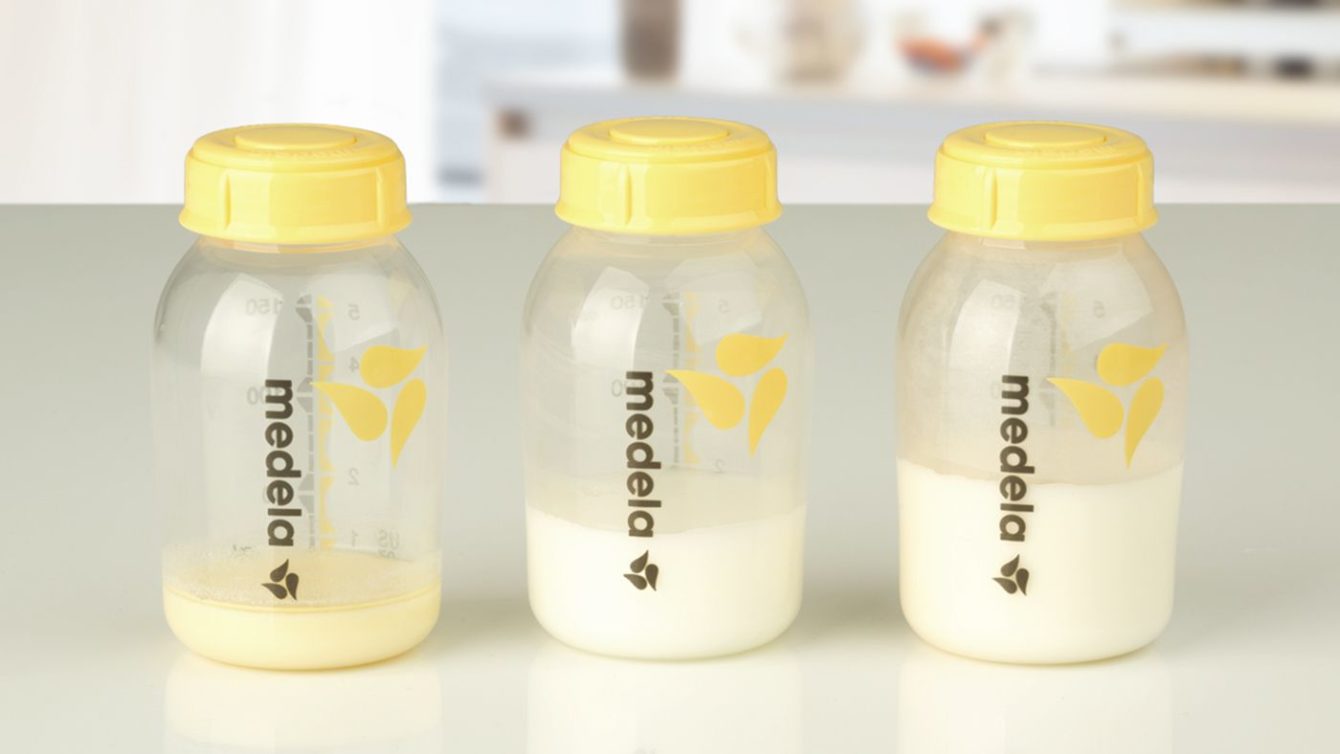Many women in our Medela Singapore Facebook community are first-time moms. New moms tend to want to do everything “right” when it comes to raising their new babies, while at the same time worrying that there are lots of aspects of motherhood that are completely new to them. It is natural to want to do the best for your baby, starting right from day one – but sometimes it’s better to not be too prepared. Sometimes it’s best to just go with the flow and experience each day as it comes. Remember that your baby was just born! Imagine how noisy and crazy the world must seem to their little eyes and ears! And keep in mind that being a new mother is a huge, life-changing transition for you as well. Expect every emotion from fear to joy, and everything in between.
During the first six weeks of a newborn’s life, can be pretty demanding, without a lot of positive feedback for the parents. There will be no smiles and hugs right away. Newborn babies’ behaviour is not consistent and there are no firm guidelines, no “normal.” Every baby is different in terms of how they like to sleep, feed, and be wakeful or restful. Newborns tend to sleep a lot but not in long stretches so you really are totally on call, 24-7. Newborns will often wake up just when you have gone to sleep yourself! (This makes it even more important to always try to “sleep when the baby sleeps,” even if you must neglect the household chores.)
Even though a mom has been pregnant for nine months, this little creature is a completely new person. Just like any new individual in your life, there are going to be some adjustments along the way as you learn from each other and build an amazing relationship. Getting to know your child takes patience and practice! With that in mind, here are some practical tips for new moms on getting to know your newborn baby:
Newborn Babies Are Delicate, but not that Fragile
The umbilical cord will take a few weeks to drop off. Wash it gently until then, but do not worry if it bleeds a little when it comes off. The American Academy of Pediatrics (AAP) does not recommend using rubbing alcohol (or any other cleaning products) to clean your baby’s umbilical cord stump. The stump will gradually shrivel and fall off all on its own, and all you need to do is keep the stump area clean and dry. This means, instead of giving your baby a fully submerged bath, just give the baby a sponge bath. Also be sure to keep diapers folded below the cord stump – some brands of diapers have special cut-out areas for newborns just for this purpose. Keeping urine away from the cord stump will help keep the area dry and clean.
Don’t Be Afraid of the Soft Spot
Newborn babies have a “soft spot,” or “fontanelle,” on the top of their heads where the skull is still forming and growing. This soft spot is important because it enables the infant’s head to fit out of the birth canal, and it will gradually go away as the baby’s head grows and develops. Don’t be afraid to touch the fontanelle, but be gentle of course!
Watch for Weight Changes
A newborn loses 5 to 8 percent of its birth weight within the first week after birth, but should gain it back by the second. If your baby continues to lose weight after that, though, it may not be getting enough to eat. Ask for help if you are not sure. This is one area where lactation consultants can be helpful – and there is a variety of other breastfeeding support in Canada to help you understand the various changes going on with your baby’s growth. Counting the baby’s wet diapers each day is a good guideline to make sure the baby is getting enough breast milk. After the first week, you’ll see five to six wet diapers a day, and at least one or two stools.
Babies Often Get Dry Skin after a Few Weeks
There are some options to help heal dry skin but it will normally adjust quickly to life outside the moist warm environment of the womb. Don’t forget that babies are used to being in the womb surrounded by warm amniotic fluid. Life in the outside world is a big adjustment, especially during the colder, drier times of year. Parents Magazine offers some suggestions for products to help with baby’s dry skin.
Babies Cry a Lot
It’s how they communicate and respond to their world. Babies’ crying is the way to show that they are hungry, scared, uncomfortable, or needing to be cuddled. Try to be patient and calm when faced with the baby’s cries – especially if you have a baby with symptoms of colic. If your baby cries for more than 3 hours a day, 3 days a week or more, for longer than 3 weeks, you can say that you are seeing the symptoms of a “colicky” baby.
Babies Sleep a Lot
Especially during the first six weeks of life, babies mostly sleep, eat and cry. It’s not unusual for babies to sleep 16-21 hours per day, but not all in one session. Babies will often nap during the day – but it’s best not to let them take long naps (over three hours) during the day, as this will help them get into more of a nightly sleep schedule. Be sure to sleep when your baby sleeps! Every nap is precious.
Focus on Face-to-Face Contact
Babies are nearsighted and their vision is still developing, so get 8 – 12 inches from their eyes if you want them to see you. Babies also tend to respond well to skin-to-skin contact, soothing touch and gentle sounds. Sing to your baby, speak gently to them, read to them, or listen to soothing music or nature sounds together.
Try Swaddling the Baby for Comfort and a Sound Sleep
Babies like to feel contained and comforted. Swaddling clothes can help them feel snug and well situated, and keep them from startling and waking up during the night. Check out more advice on how to get your baby to sleep.
Don’t Overdo it with Bath Time
You don’t need to wash your baby every day! Though many parents bathe their babies every day, you don’t need to give your baby a bath more than once or twice a week until the child starts doing “messy” activities like feeding herself, crawling on the floor, and otherwise exploring the world. Newborns tend to stay clean for the most part, other than breastmilk spills and occasional spit-up. So don’t feel like you have to do a full “bath” every single day. Instead, focus on washing her face, and be sure to clean the baby’s genital area completely after every diaper change.
Hearing is the First Sense Babies Develop
For this reason, babies, tend to be super-sensitive to loud noises. Babies begin refining their sense of hearing in the womb, during the third trimester, when research suggests they can hear their mother’s heartbeat and pick up some outside sounds including voices and music. Babies’ sense of hearing is fully developed by the end of the first month of life, although of course they don’t fully “understand” what they’re hearing until later.
Ask for Help
New moms need lots of help! “It takes a village to raise a child,” and this is especially true when the baby is new and the demands are so intense. Don’t be afraid to ask for help. And don’t feel like you can only ask for help with small tasks like changing diapers. Changing a diaper takes two minutes; you need other people to help with time-consuming chores like shopping, cooking and cleaning.
Finally, Embrace the Chaos
There’s a funny saying about motherhood, and it’s especially true for when you’re taking care of newborns: “Keep your plans simple and be prepared to abandon them at any time.” Everyday life might start to feel like a blur, and you might wonder what happened to your old life and old self. There will be days where it feels really hard and thankless to be doing this work of raising a tiny baby who cannot say “thank you.”
But as Lori Garcia writes:
“Oh mama, big hugs! Anyone who tells you new motherhood is all sunshine and rainbows is totally doing it wrong. Think of motherhood as a veritable hodgepodge of magic, fear, bliss, poop, adoration, leaky boobs, crying, and exhaustion. You’ll laugh until you cry, cry until you laugh, fall asleep while standing, and find yourself rocking back and forth even when you’re not holding your baby. If you’re somehow convinced that you’re failing or have wondered what you’ve gotten yourself into – congratulations!”
What advice would you offer to a new mom? Please join the conversation and “like” and share this article to keep the discussion going!






















